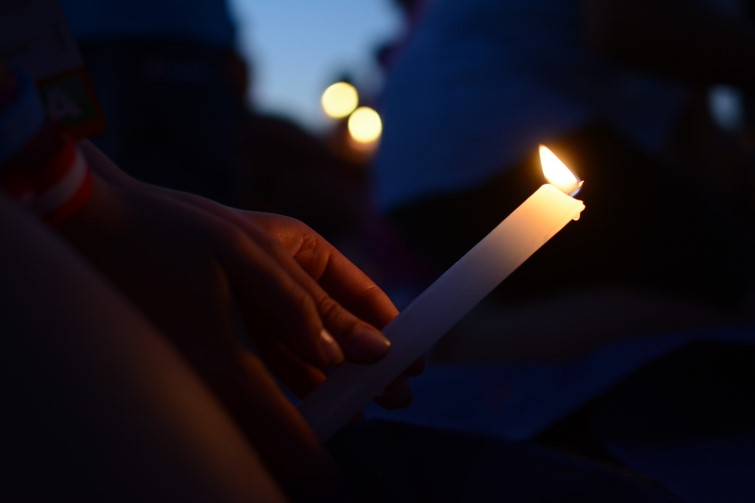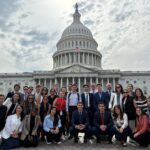Deepening the specific contribution of women in the life and mission of the Church to activate collaboration processes in ecclesial spaces
The Joint Diploma in “Women and Church: Women and Men in a Synodal Community” (IV edition) is a shared initiative between the Institute of Higher Studies on Women of the Pontifical Athenaeum Regina Apostolorum, the Pontifical Urban University, the Pontifical Salesian University, the Pontifical University of Saint Thomas Aquinas, the Auxilium Pontifical Faculty of Education Sciences, and the Claretian Institute of Theology of Consecrated Life. It also has the sponsorship of the Catholic Leaders Academy of Latin America.
The course explores the specific contribution of women in the life and mission of the Church, to activate mutual collaboration processes between women and men in ecclesial spaces. This reflection is linked to the issue of lay faithful, primarily raised by the Second Vatican Council and still not fully realized. Alongside numerous examples of fruitful collaboration between men and women in the life and mission of the Church, there are also cultural and other barriers that obscure their reciprocity and effective cooperation. Furthermore, the Church is convinced of the need to include women’s contributions in decision-making roles. The path must begin with a renewed understanding of the dignity of baptismal priesthood, avoiding the clericalization of laypeople in general and women in particular. Additionally, the Church needs to discover its feminine and maternal face to fully live out its vocation. The horizon of this reflection is a Church that must undertake a path of conversion towards synodality. What is the role of women in this context?
Target Audience:
The course is aimed at priests, religious men and women, and laypeople (both men and women) engaged in ecclesial contexts at curial, diocesan, academic levels, or in formative roles within various forms of consecrated or associative life, who wish to increase awareness and activate processes in these areas to promote greater and better collaboration between men and women within the Church.
The prerequisite for admission is holding a university degree.
Structure:
The general program follows the dynamic of listening, discerning and acting.
Listening as a missionary disciple: understanding current challenges in different contexts: the light and shadows of the situation of women within the Church and of collaboration between clergy and laity, illuminated by faith and considering fruitful examples of collaboration between men and women, as well as the difficult recognition of women in various geographical contexts.
Discerning: understanding the causes of these challenges (cultural, historical, and anthropological factors), the foundations and criteria to guide thought and action.
Acting: outlining paths to follow, necessary tools to move towards conversion and renewal of the Church, based on the perspectives opened by the Second Vatican Council.
Scientific Committee:
- Anita Cadavid, Institute of Higher Studies on Women (APRA)
- Lorella Congiunti, Pontifical Urban University
- Catherine Droste, Pontifical University of Saint Thomas Aquinas
- Mario Llanos, Pontifical Salesian University (UPS)
- Grazia Loparco, Auxilium Pontifical Faculty of Education Sciences
- Marta Rodríguez, Institute of Higher Studies on Women (APRA)
- Gianrico Ruzza, Bishop of Civitavecchia and Porto-Santa Rufina
- Nicla Spezzati, Lateran University, Institute of Theology of Consecrated Life Claretianum
Dates: October 12, 2023 – February 29, 2024
Synchronous class schedule: every Thursday, from 18:00 to 19:30 (Rome time). All materials will be recorded so they can be accessed asynchronously.
Credits: 12 ECTS
Cost: 500 euros.
Available resources:
- 15 complete class notes (15 pages per class)
- Over 40 videos from professors
- 15 synchronous classes
- 3 experiential workshops
- Teacher forum for each topic and additional bibliography
- 2 international round tables
- 1 Open Class
MODULES:
Socio-historical: presents active processes from the 19th century that still take place in various contexts, addressing cultural issues; focusing on strengths and weaknesses, acquired convictions, and problematic nodes of inculturation of the Catholic faith in social dialogue, to suggest developments that allow us to proceed proactively.
Anthropological (philosophical and theological): deepens the understanding of the significance of sexual difference in the human person and the complexity of elements involved in forming sexual identity, aiming to illuminate how collaboration and reciprocity between men and women can be expressed in ecclesial contexts.
Ecclesiology: based on the ecclesiology of communion matured in Vatican II, revisits the most significant points of the conciliar and post-conciliar Magisterium regarding laity and women, to open paths for creative, faithful, and prophetic application.
Workshops: a space to explore and enhance aspects of oneself to foster perception of one’s masculinity or femininity (listening), interpret studied contents (discerning), personalize a new way of relating and collaborating as a woman or man with Christ in the Church (acting).
At the end of the course, participants will be able to:
- Deepen the alliance between men and women in the ecclesial sphere, based on the recognition of the novelty of the Gospel in understanding reciprocal relationships.
- Assimilate the foundations and guiding criteria of promoting women’s contribution within the Church.
- Identify the main reasons behind women’s difficulties in fully carrying out their mission.
- Understand some expressions of female subjectivity in the life and mission of the Church in different contexts and grasp the historical dynamism, as a prerequisite to overcoming anachronistic schemes.
- Develop an understanding of Catholic tradition within a hermeneutic of continuity across different eras and cultures.
- Recognize new and attractive perspectives on women’s mission within the Church from a renewed understanding of baptismal vocation.
For more information:
Carlo Fattori:
Email: issdonna@upra.org
Phone: +39 06 91689918
Cell: +39 349 8168476
Phone: +39 06 91689918










